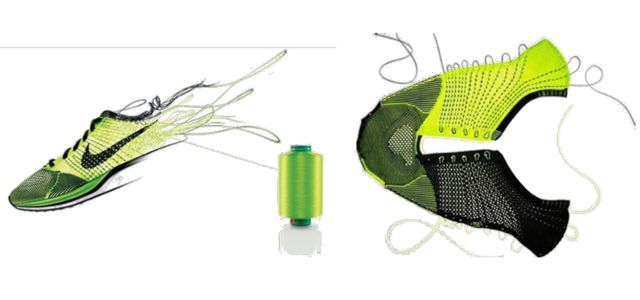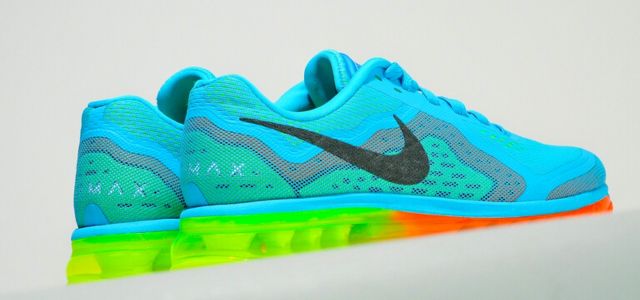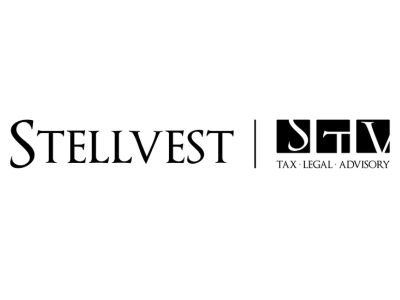At the beginning of November 2023, the footwear giant Nike filed lawsuits against its competitor, New Balance, before the Federal Court of Massachusetts and against Skechers before the Federal Court of Los Angeles for infringement and non-consensual use of patented technology known as ‘Flyknit’. Flyknit is used in the production of sports shoes for running, football, and basketball.
Nike’s patented Flyknit technology is based on the use of high-resistance fibers to create lighter shoe uppers that offer specific areas of support, elasticity, and breathability.
Below is an early example of a Nike Flyknit shoe upper (extracted from the lawsuit Nike Inc. v. New Balance Athletics, Inc., United States Court for the District of Massachusetts).

Nike has previously been involved in legal disputes related to these patents that protect its Flyknit technology. Specifically, Nike sued Adidas, Puma, and Lululemon for infringement. Regarding the lawsuits filed against Adidas and Puma, an out-of-court settlement agreement was reached – the lawsuit against Lululemon continues.
On this occasion, Nike’s lawsuit filed against New Balance states that the shoes from the Fresh Foam and FuelCell lines, among others from the New Balance brand, violate Nike’s patent rights. Likewise, Nike maintains that Sketchers’ Ultra Flex and Glide Step models also infringe its patented technology. Specifically, it alleges that nine patents related to the Flyknit technology (US Patent Nos. 8266749, 8898932, 9060562, 9510636, 9730484, 9907350, 9918511, 9924758, and 11707105), including manufacturing methods, design features, and specific functionality of the shoes.
The lawsuit filed by Nike against New Balance seeks compensation for damages without a specified amount, as well as the adoption of a permanent injunction that may prevent the commission of further or future infringements by New Balance. Specifically, a series of judicial actions have been requested, including the declaration of infringement of the patents owned by Nike by New Balance in accordance with the provisions of section 35 USC § 284, and a permanent injunction prohibiting New Balance and its affiliates from continuing to infringe.
Nike requested the following:
- The entry of judgment in favor of Nike and against New Balance
- A finding that New Balance has infringed claims of the following US Patents under 35 USC § 271(a), (b), and/or (g): US Patent Nos. 8,266,749, 8,898,932, 9,060,562, 9,510,636, 9,730,484, 9,907,350, 9,918,511, 9,924,758, and 11,707,105
- An award of damages against New Balance adequate to compensate Nike for the infringement, but in no event less than a reasonable royalty as permitted under 35 USC § 284, together with prejudgment interest and post-judgment interest and costs
- A finding that New Balance’s infringement is and has been willful, and a judgment that Nike is entitled to discretionary enhancement of its damages and other relief as provided by 35 USC § 284
- A permanent injunction prohibiting further infringement by New Balance, and each of its subsidiaries, successors, parents, affiliates, officers, directors, agents, servants, employees, and all persons in active concert or participation with it
- Such other relief that Nike is entitled to under the law and any other and further relief that this Court or a jury may deem just and proper.
It will be interesting to see in this case if two judicial pronouncements are reached and the alleged infringement is resolved or if this will be another case where everything is resolved through an out-of-court agreement. My guess is that it will be the latter. Stay tuned!

Written by Miriam Martínez Pérez
Managing Partner, Stellvest Tax Legal Advisory
You may also like…
A $10 million patent win reduced to a $1 lesson in damages
In a decision that will resonate as a stark warning to patent litigants, the US Court of Appeals for the Federal...
Chevron’s ghost and the return of deference
Chevron U.S.A. Inc. v. Natural Resources Defense Council, 467 US 837 (1984) instructed courts to defer to an agency’s...
China’s push to lead AI-driven communication: patents, innovation, and global competition
On a technical level, one of the most significant trends in the global information and communication industry today is...
Contact us to write for out Newsletter














